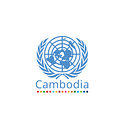UN DS Reforms in Practice: Upgrading the UN system in Cambodia: How to stay relevant in the changing development context?
By Kara Nemeckova, Sustainable Growth and Development Analyst, United Nations Resident Coordinator Office in Cambodia
In September, I participated at a series of five virtual reflection sessions that brought together the UN system in Cambodia. The Covid-19 pandemic has fundamentally changed the development context and posed an unprecedented challenge to our work. The UN agencies and programmes in the country had to quickly adapt and come together to deliver a system-wide coordinated response. The workshops presented an opportunity to take a pause and look back at the lessons learned. The idea was to bring the Head of Agencies and technical staff outside of usual programme operations thinking and connect their strategic planning to wider development issues. Is the UN still fit for purpose? The United Nations System in Cambodia is guided by a five-year Development Cooperation Framework which drives strategic planning and implementation of the UN development activities at country level in support of the 2030 Agenda. 2021 marks the mid-term of the current Cooperation Framework and we used this occasion to reflect on whether it is still relevant in the changing development environment. How must the UN adapt to the new emerging trends to ensure a better, more sustainable future for people and for the planet?
Last year, the UN Country Team in Cambodia committed to integrate more futures thinking in its DNA and this is precisely why the RCO team decided to employ the strategic foresight technique in the first two sessions. Many of the participants, including me, were not very acquainted with the concept. However, thanks to the guidance of the facilitator we were able to familiarize ourselves with this discipline. In small groups, we used the strategic foresight method to flag the emerging risks and opportunities and identify the big bold ideas for the UN to act on to remain relevant. From there, we outlined future scenarios drawing on the nexus of disaster preparedness and civic space.
The third session was focused on discussions around the coordinating architecture of the UN development system in Cambodia and presented a valuable opportunity to share good practices from the results groups. The fourth session was dedicated to partnership and financing strategy. The participants discussed how to move beyond dialogue to strategic areas where private sector could make a difference. The fifth concluding session was aimed at making sense of all of this and identify the next steps.
During the workshops, we were asked to think about the big shifts that need to happen for system transformation. The discussions revealed a number of positive trends that are already underway, shift in the narrative on human rights as a comparative advantage, the opening opportunity of engagement with new generation of policy makers, shift from national level focus to engagement on grassroots level as well as investment in social protection. The participants agreed that the priorities of our development system in Cambodia not only remain the same but are becoming more and more pressing in the changing context, namely focus on Human Rights, Climate Action and green growth, as well as digital transformation.
The workshops reaffirmed the centrality of the results groups. As the main coordination mechanisms which lead the formulation of joint work plans, they were encouraged to expand in-depth discussion on current scenarios to further shape these big bold ideas. Reacting to the growing need of multi-stakeholder engagement, the reflection identified private sector as an essential partner for sustainable development.
“I have observed that positive changes have been realized as the result of the UNDAF mid-term reflection. For example, UNDAF Result Groups have shown more proactive engagement in the reporting and planning process. I have also noticed increased engagement among the members of the Results Groups, moving beyond compliance exercise to a discussion with a strategic focus and increasing synergy through joint collaboration and joint implementation.” Lan Laing, RCO Data Management and Results Monitoring/Reporting officer.
I noticed that two ideas resonated across all five sessions. First, the challenge is to find new ways to generate more meaningful engagement with our stakeholders, particularly with the government in relation to the Cooperation Framework. Second, the biggest task ahead is to come together as one UN system, use collective assets and intelligence, as the UN country team did during the pandemic, and provide added value together. This was the moment when I realized I was witnessing a true paradigm shift, a change in the thinking about how the UN should function on the outside as well as the inside.
The workshops spoke to what the Secretary General envisions in Our Common Agenda — to have an upgraded UN 2.0 that is more integrated and fit for the new era. This transformation will be rooted in data, innovation, strategic foresight, behavioral science and a focus on performance and results.
• In this spirit, foresight is becoming an integral part of our analysis.
• Futures lab, a series of workshops for transformative leadership was launched to engage young emerging politicians.
• As part of our work, we are strengthening the national statistical system and our internal data ecosystem to increase data reliability and availability.
• We have embodied the common agenda through our leading-edge work on sustainable financing and focus on the future generation with climate change and human rights at the core.
I am excited to see how we, as one UN, can use the remaining period of our development cycle proactively, translate the outcomes of this reflection into actions and harness our collective assets to better recover from the pandemic and accelerate sustainable development with our common agenda at the heart.
